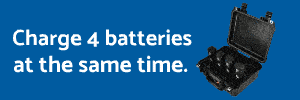- Joined
- Feb 19, 2014
- Messages
- 701
- Reaction score
- 23
People love to take things out of context and use what they think it is and apply that to what they want it to mean.
The FAA is doing just this.
The FAA says that, because you used your "aircraft" "for hire", that makes it a commercial business.
However, taking a closer look at the FAA's own definition of "commercial operator" we find a slightly different meaning.
from
http://www.ecfr.gov/cgi-bin/text-idx?c= ... .1.1.0.1.1
"Engages in the carriage by aircraft..........."
Does this part of the definition mean then, the transportation of goods and or people? Or just the fact the craft was in the air?
The FAA, IMO, has taken the base definition of the word "commercial" and made that to mean "The exchange of money for services rendered.".
You have a yard sale. Are you a business for doing so?
Technically and legally, no.
But if you put those same items inside a store which is licensed as a business, then yes you are.
Such as a consignment shop.
If I stand in front of a house, take a photo of it, and get paid for it, that's not a big deal.
But, if I put that same camera on a drone, send it 50 feet up in the air and take a photo, suddenly it becomes illegal?
IMO, The US congress needs to clamp down on the authority of the FAA over RCMA's regardless of use.
Under 400 feet is fair game and the FAA has no jurisdiction.
Period.
The FAA is doing just this.
The FAA says that, because you used your "aircraft" "for hire", that makes it a commercial business.
However, taking a closer look at the FAA's own definition of "commercial operator" we find a slightly different meaning.
from
http://www.ecfr.gov/cgi-bin/text-idx?c= ... .1.1.0.1.1
Commercial operator means a person who, for compensation or hire, engages in the carriage by aircraft in air commerce of persons or property, other than as an air carrier or foreign air carrier or under the authority of Part 375 of this title. Where it is doubtful that an operation is for “compensation or hire”, the test applied is whether the carriage by air is merely incidental to the person's other business or is, in itself, a major enterprise for profit.
"Engages in the carriage by aircraft..........."
Does this part of the definition mean then, the transportation of goods and or people? Or just the fact the craft was in the air?
The FAA, IMO, has taken the base definition of the word "commercial" and made that to mean "The exchange of money for services rendered.".
You have a yard sale. Are you a business for doing so?
Technically and legally, no.
But if you put those same items inside a store which is licensed as a business, then yes you are.
Such as a consignment shop.
If I stand in front of a house, take a photo of it, and get paid for it, that's not a big deal.
But, if I put that same camera on a drone, send it 50 feet up in the air and take a photo, suddenly it becomes illegal?
IMO, The US congress needs to clamp down on the authority of the FAA over RCMA's regardless of use.
Under 400 feet is fair game and the FAA has no jurisdiction.
Period.







